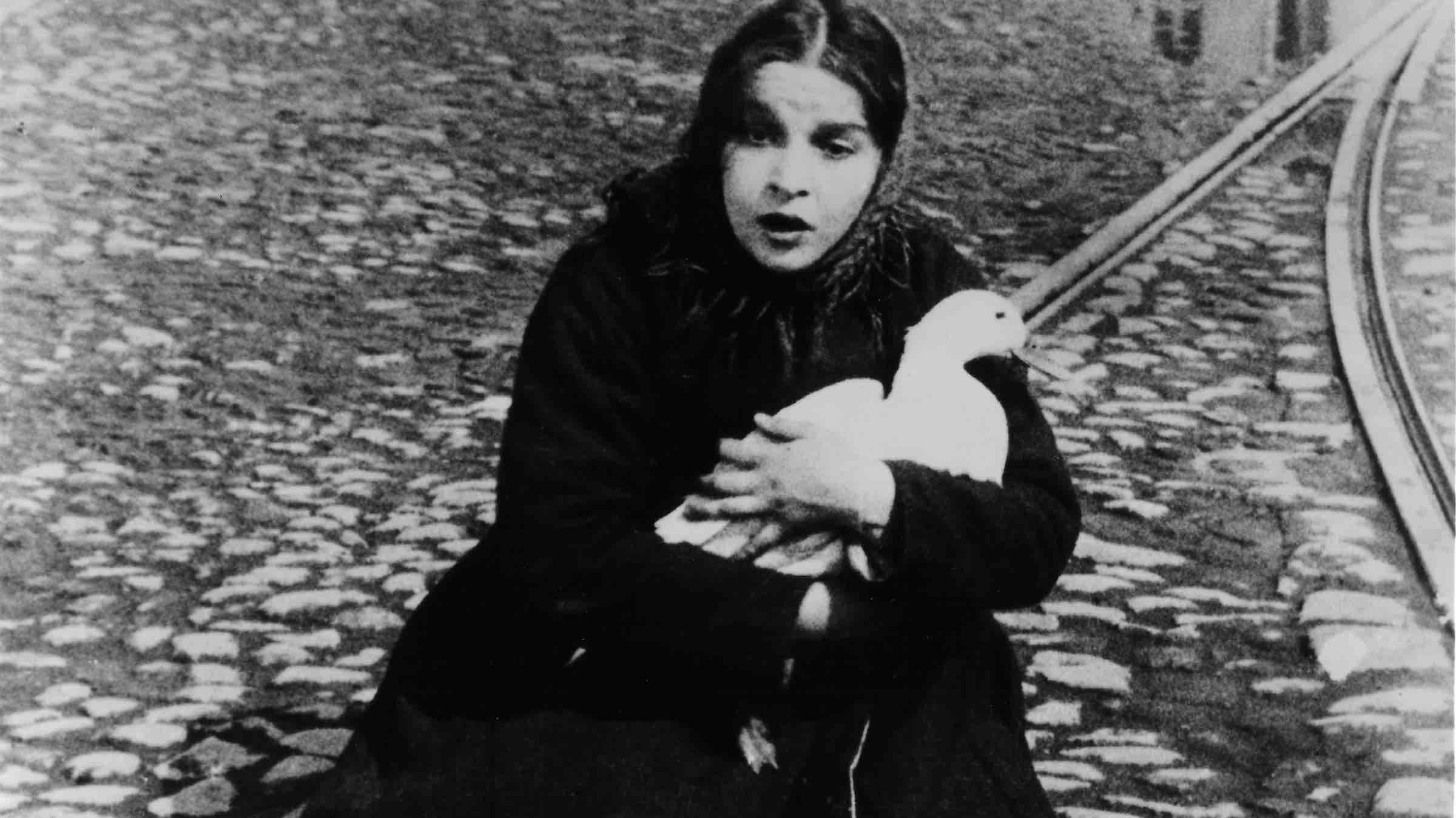Soviet filmmaker Boris Barnet made his entrance into motion pictures via the boxing ring, with an improbable set of skills that ultimately proved necessary. It took a lot of rolling with the punches to maintain and sustain a career that began in the post-revolutionary period all the way through the Stalin years and beyond, and to deal with success, failure, and indifference. At the end, Barnet couldn’t handle the erosion of his talents, but his tragedy is somewhat mitigated by the rediscovery and celebration of his films in the last two decades. He’s the rare director whose movies and reputation have been restored to the pinnacle by subsequent generations.
Barnet was a humanist who deftly blended humor and drama without the crutch of sentimentality or the anchor of state-mandated ideology, as evidenced by his canny, clever, and vastly entertaining 1928 comedy The House on Trubnaya Square. Although the perception may still hold that all Soviet directors undergirded (or tempered, if you prefer) their service to political and social goals—and satisfied their artistic needs and impulses—with narrative and technical innovations, we may better appreciate Barnet as a comrade-in-arms of Jean Renoir as much as Sergei Eisenstein.
Born in 1902 into a middle-class family that hailed from England, Barnet studied architecture and painting. He was a set designer at the Moscow Arts Theatre before the Revolution arrived and he joined the Red Army as a medic. Barnet took up boxing while in uniform, and it was his footwork and athleticism that eventually caught the eye of pioneering film theorist and aspiring director Lev Kuleshov and his actress wife Aleksandra Khokhlova. They solicited Barnet to join their ensemble and the following year cast him as a cowboy in Kuleshov’s first feature, The Extraordinary Adventures of Mr. West in the Land of the Bolsheviks (1924).
Barnet learned a great lesson on that picture, and it had nothing to do with casting or camera placement. In a scarring episode, a tightrope mishap resulted in Barnet hanging some 70 feet in the air. Instead of ordering an immediate rescue, Kuleshov, according to Barnet, left the unlucky thespian twisting in the wind (metaphorically, and perhaps literally) for half an hour while berating him nonstop. We can likely ascertain Barnet’s future attitude toward actors from this incident, for throughout his career behind the camera he evinced adoration for his players, encouraging them to improvise, and even accepted a bit of anarchy on the set.
Although he ceased working with Kuleshov after Mr. West, Barnet wasn’t scared off of acting. He played one of the titular characters in Miss Mend (a.k.a. The Adventures of the Three Reporters, 1926), which marked his writing and directing debut (with Fyodor Otsep). The three-chapter serial about a union secretary was a huge hit, in part because it borrowed the pace and cliff-hanger thrills of early American movies.
Barnet capably took on the directing chores by himself for the wonderful The Girl with the Hatbox (1927), a romantic comedy that slyly satirized the rules and subterfuges that accompanied the implementation of the Soviet Union’s new housing policies. His knack for portraying the sometimes absurd, sometimes tragic collision of idealism and human nature was on ample display.
Although—or perhaps because—the party heads recognized cinema’s power and contribution to the Revolution, they began in 1928 to clamp down on both stylistic experimentation and any perceived echoes or sway of foreign (primarily American) culture. But it’s difficult to discern the effect of any constraints or admonitions on Trubnaya, which imagines the migration of a naïve rural duo, a girl named Parasha (the peerless Vera Maretskaya) and her duck, to the big, chaotic city.
The literary critic Viktor Shklovsky, novelist Anatoly Mariengof, poet Vadim Shershenevich, and dramatist Nikolai Erdman all had a hand in the screenplay. While it’s never a good sign when so many writers are credited on a Hollywood film, Barnet melded their contributions into a lucid and vastly entertaining whole.
In the course of the 64-minute feature, Barnet joyfully employs an array of techniques from zippy montage to freeze-frames—even stop-motion animation. The director drolly interrupts the opening sequence of Parasha and her fowl adrift in the crowded, confusing city at the moment the girl looks up and finds herself in the path of an oncoming trolley. A perfectly placed freeze-frame, rewind, and flashback—designed to delight us rather than impress us with its cinematic sophistication—show how the country girl came to be in Moscow (and seemingly in mortal danger) in the first place.
An enthusiasm for location shooting enabled the director to stuff The House on Trubnaya Square with details of actual urban life, while his talent and ingenuity for devising and employing sets produced an eye-catching cutaway interior of a five-story apartment house. More than just a striking visual device, the set underscored the film’s wry worldview that good old-fashioned selfishness trumped the newly installed (but not yet instilled) communal spirit.
The newly arrived Parasha takes a job cleaning the apartment of a self-serving hairdresser (Vladimir Fogel) and his wife. In the inevitable formula laid out by Marx, employment leads to exploitation, a law of economics with unmistakable resonance in present-day Bangladeshi sweatshops and New York fast-food franchises.
Barnet, unlike some of his contemporaries, transitioned easily to the sound era with the influential masterpieces Outskirts (1933) and By the Bluest of Seas (1936). During World War II, however, no fewer than three of his films were banned. The last one, Once at Night, a saga of resistance and self-sacrifice in which a terrified young woman hides a pair of downed Soviet airmen during the German siege of Stalingrad, was deemed “too gloomy” in 1945. The official thinking may have been that the time for heroic wartime sacrifices had passed, and films should direct the Soviet people to look to the future.
Barnet worked steadily through the 1950s, however, so evidently he wasn’t considered persona non grata by the film office. But it must have taken every iota of the fancy footwork he mastered as a boxer, as Soviet critics, judging every film on its revolutionary bona fides, found Barnet’s work lacking. Yet his films were esteemed outside the U.S.S.R. Bountiful Summer (1951) prompted Nouvelle Vague director Jacques Rivette to declare that Barnet was second only to Eisenstein among Soviet filmmakers.
As the rejuvenation of Barnet’s reputation in the 21st century proves, generosity of spirit is a quality that ages well. The film historian Bernard Eisenschitz wrote in 1991, “His films convey more than most the intensity of happiness, the physical pleasure of meeting and contact, the inevitable tragedy of relationships.”
Boris Barnet was just 62 when he committed suicide in 1965 during preproduction on the historical drama The Ambassadors’ Plot, allegedly out of despair that his artistic gifts had faded. If that truly was the reason, he was measuring himself against some of the loftiest accomplishments in Soviet cinema—his own filmography.
Presented at SFSFF 2013 with live music by Stephen Horne

